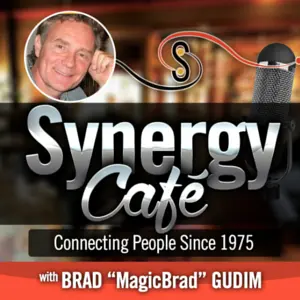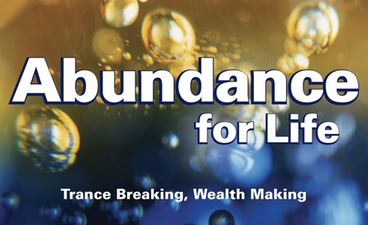HOST: MagicBrad – https://MagicBrad.com
CO-HOST: Casey Peak – https://MycoShift.com
Title: Debunking Atheist Arguments: Can Consciousness Exist Without God?
In the realm of philosophical discourse, few topics ignite as much passion and debate as the existence of God and the nature of consciousness. Atheists often argue that consciousness can exist independently of any divine being, attributing it to the complex workings of the human brain. But can consciousness truly exist without God? In this post, we’ll delve into this question and debunk some common atheist arguments.
To set the stage for this exploration, let’s introduce MagicBrad, the host of The Synergy Cafe Video Show. MagicBrad invites guests from various backgrounds to discuss intriguing topics, including religion, spirituality, and the nature of existence. Our conversation today takes inspiration from one of his thought-provoking episodes, where the question of consciousness without God was passionately debated.
Atheist Argument #1: Consciousness is a Product of Brain Activity
One of the primary arguments put forth by atheists is that consciousness is simply a product of brain activity. They argue that the intricate network of neurons firing in the brain gives rise to our thoughts, emotions, and experiences, without the need for any divine intervention.
However, this argument fails to address the fundamental question of why consciousness exists in the first place. While it’s true that brain activity correlates with conscious experience, correlation does not imply causation. The mere presence of neural activity does not explain the qualitative nature of consciousness itself – the subjective experience of being aware.
Moreover, the atheist argument overlooks the phenomenon of near-death experiences (NDEs) and other transcendent experiences reported by individuals worldwide. These experiences often involve a profound sense of consciousness detached from the physical body, suggesting that consciousness may extend beyond the confines of the brain.
Atheist Argument #2: Evolutionary Explanations for Consciousness
Another common atheist argument posits that consciousness evolved as an adaptive trait, conferring survival advantages to early humans. According to this view, consciousness emerged through natural selection as a means of processing information about the environment and guiding behavior.
While it’s true that evolution has shaped the human brain and cognitive abilities, this does not explain why consciousness itself arose. Evolutionary explanations focus on the functional aspects of consciousness – its role in decision-making, problem-solving, and self-awareness – but they do not address the underlying mystery of subjective experience.
Furthermore, the argument for consciousness as an evolutionary byproduct fails to account for its seemingly non-material nature. If consciousness were purely a product of biological processes, why does it exhibit qualities that transcend the physical realm, such as self-reflection, creativity, and moral intuition?
Debunking Atheist Arguments
In light of these atheist arguments, it becomes clear that they fall short of providing a satisfactory explanation for consciousness without invoking God. The existence of consciousness poses a profound challenge to purely materialistic worldviews, suggesting that there may be more to reality than meets the eye.
So, can consciousness exist without God? While atheists may offer compelling explanations rooted in science and evolution, they ultimately fail to address the deeper metaphysical implications of consciousness. As we continue to explore the mysteries of the mind and existence, perhaps we’ll uncover clues pointing to a higher purpose or divine origin.
In conclusion, the debate over consciousness and God remains as lively and contentious as ever. Whether you’re a believer, skeptic, or somewhere in between, it’s essential to approach these questions with an open mind and a willingness to engage in thoughtful dialogue. After all, it’s through such conversations that we may come closer to understanding the true nature of consciousness and its place in the universe.
Join us next time as we delve into another fascinating topic on The Synergy Cafe Video Show, hosted by the one and only MagicBrad. Until then, keep questioning, exploring, and seeking truth wherever it may lead.
JOIN the SynergyCollaborative with Casey Peak and MagicBrad












